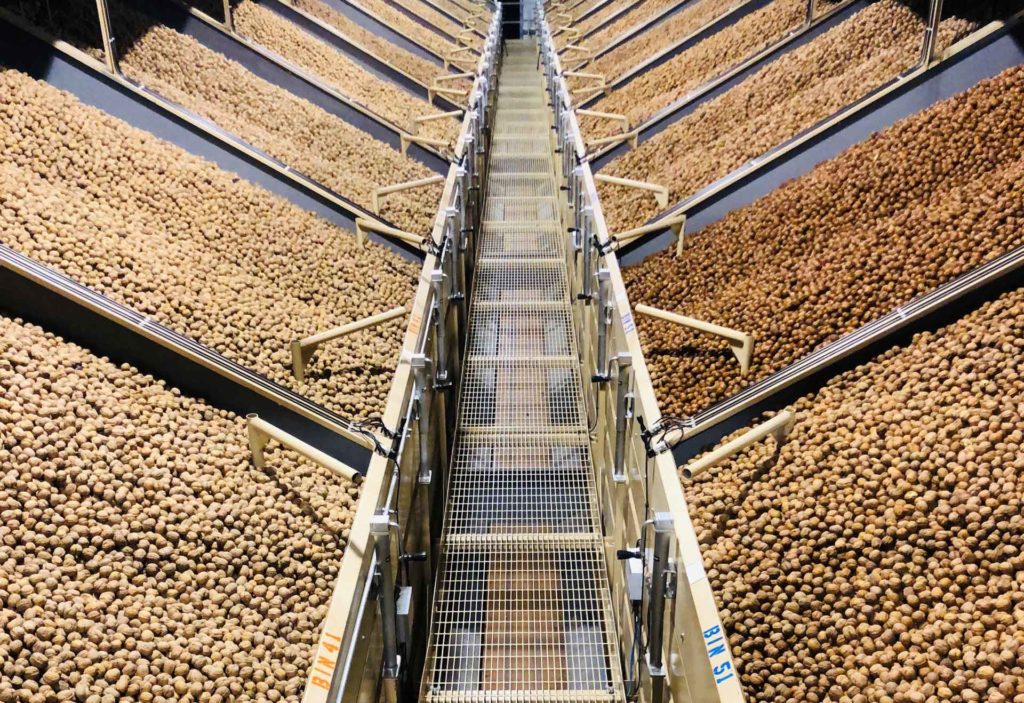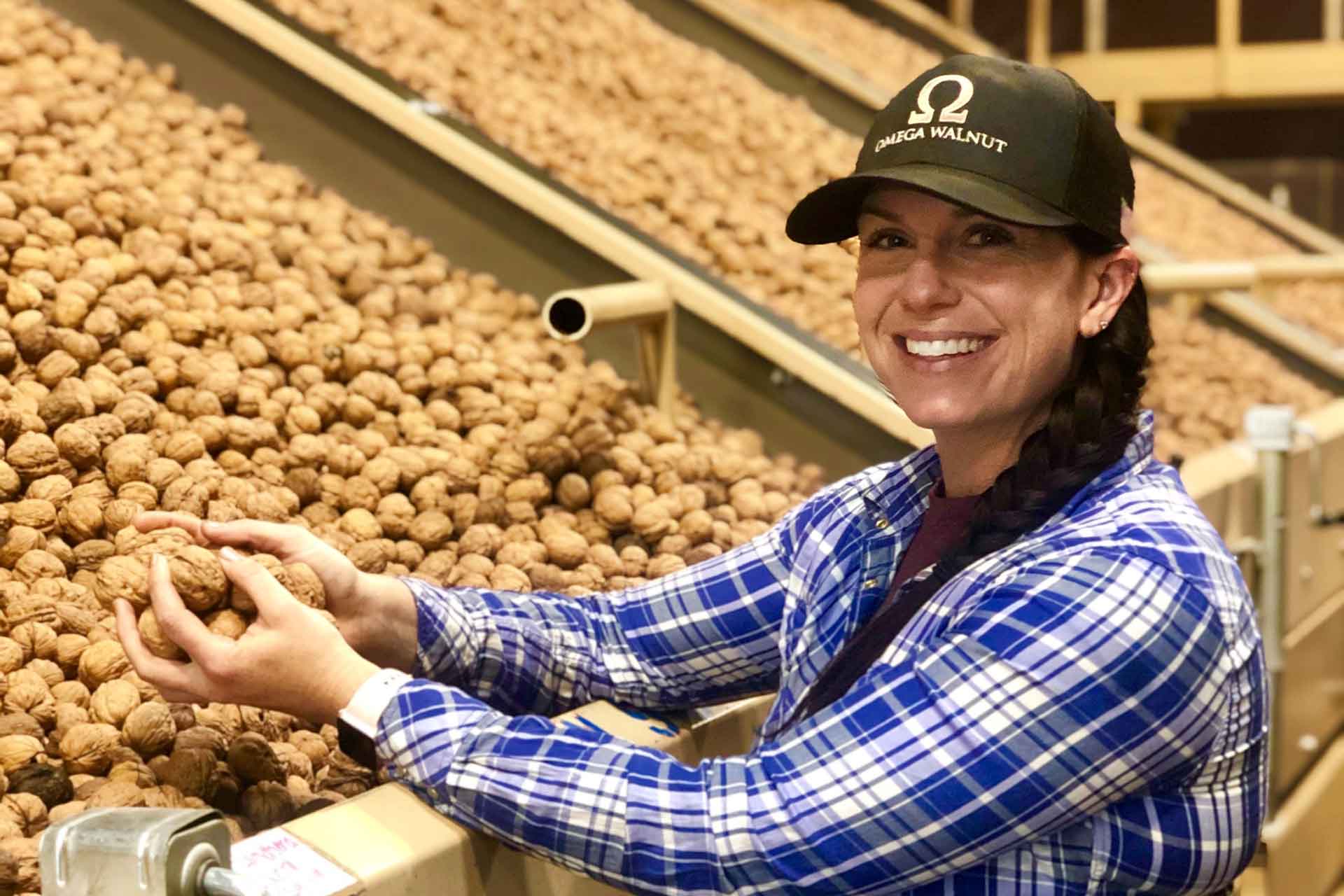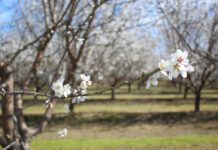To Jocelyn Anderson, farming is a family tradition that has been passed down on both her mother and father’s side. Farming, however, wasn’t always where she envisioned her life taking her. Anderson’s maternal great grandparents moved to Anaheim from the Netherlands and started farming oranges. In search for more farmland her grandparents moved to Willows, California. They started a small farm, primarily farming sugar beets, row crops and rice.
Jocelyn’s Dad, Gary, also grew up farming. His parents met at Cal Poly, San Luis Obispo and farmed walnuts in Paso Robles. They sold the farm eventually to move up north to the Bayliss area as well for better opportunities in agriculture. With the expertise in walnuts and background as a Pest Control Advisor (PCA), Gary later joined his wife’s family business and expanded from corn, winter wheat, and alfalfa to add almonds and walnuts to the mix.
Growing up Jocelyn wasn’t very involved in farming. She was active in 4-H but swimming was more her passion. She remembered being, “Too involved in swimming in high school and even in college, to pay much attention to what was happening on the farm.” It wasn’t until after college, when she became an elementary school teacher that she started to gain an interest in agriculture.
Jocelyn recalls, “When I started teaching in Clear Lake, the kids had little involvement or knowledge of agriculture. I would bring science and agriculture into my lesson plans with walnuts and rice. My last two years of teaching, I taught in Willows, and there was more agriculture influence present in the community so the kids were more familiar when I brought it into the classroom.” It was after she moved back to the community that she grew up in, that she decided to make the career change and work on the family farm.
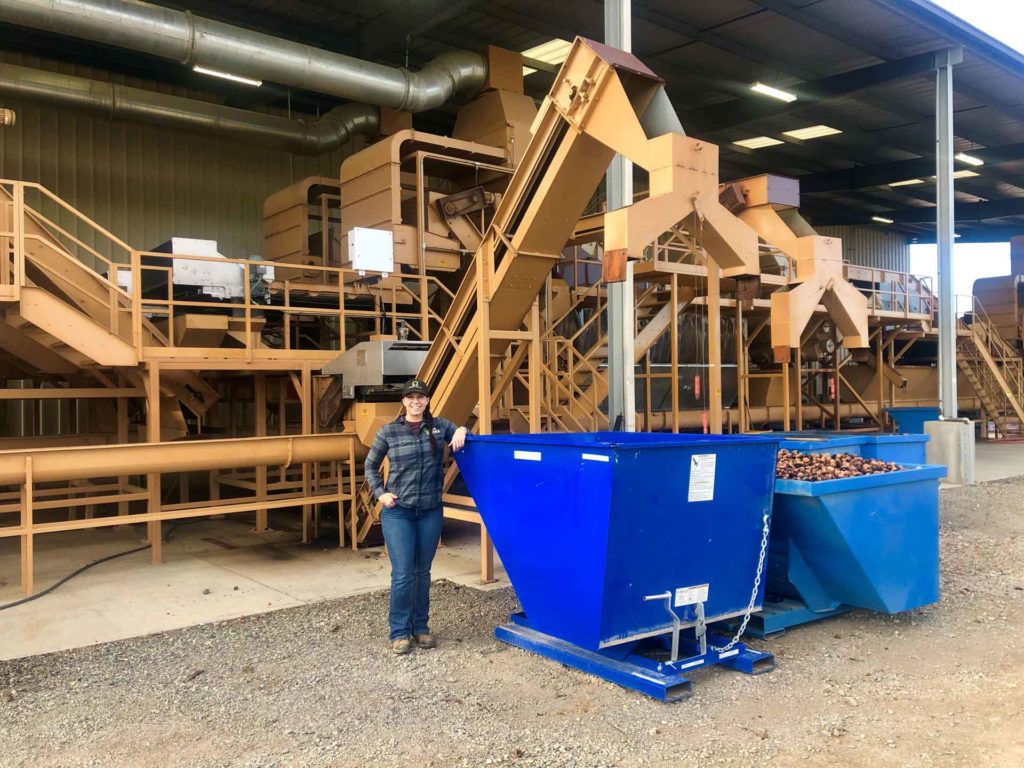
Transitioning Back to the Family Farm
“It was really nerve racking at first moving from the classroom to the farm. I love learning and I knew I could learn everything I needed to know from my Dad, but I wanted to learn everything. I didn’t just want to learn upper level jobs or work in the office. I learned how to change oil on the equipment, general maintenance to tractors. I wanted the knowledge of how to do everything right and be able to do it myself,” Jocelyn adds as she reflects on her transition.
There are many individuals who can come back into the family business who just want the management roles and don’t want to work for it. Jocelyn wanted to earn the management role and show she was capable of handling the tough jobs, too. It was that need for being proficient in all job duties on the farm that has helped Anderson gain the trust and confidence from others involved in the agriculture industry.
Gary isn’t as fond of the paperwork or computer side of the business, which for Jocelyn those tasks came easier for her to manage. The generational differences have helped the father-daughter duo complement each other on the family farm. She has helped advance the farm and huller with more technology to make processes more efficient, but she says it is a still a long road to come. “The huller is 16 years old, so slowly we will update and advance the technology, but it takes time.”
Jocelyn said she just wanted to start by learning the basics but the biggest growth has been in her Dad and the two learning to work together.
Over the last four years, Anderson has moved from those basic learning steps to an assistant manager and learning how to manage the whole farm together. GSA Farms, grows almonds, walnuts, winter wheat, corn and alfalfa as well as operating a walnut dryer. Together, they make it all work.
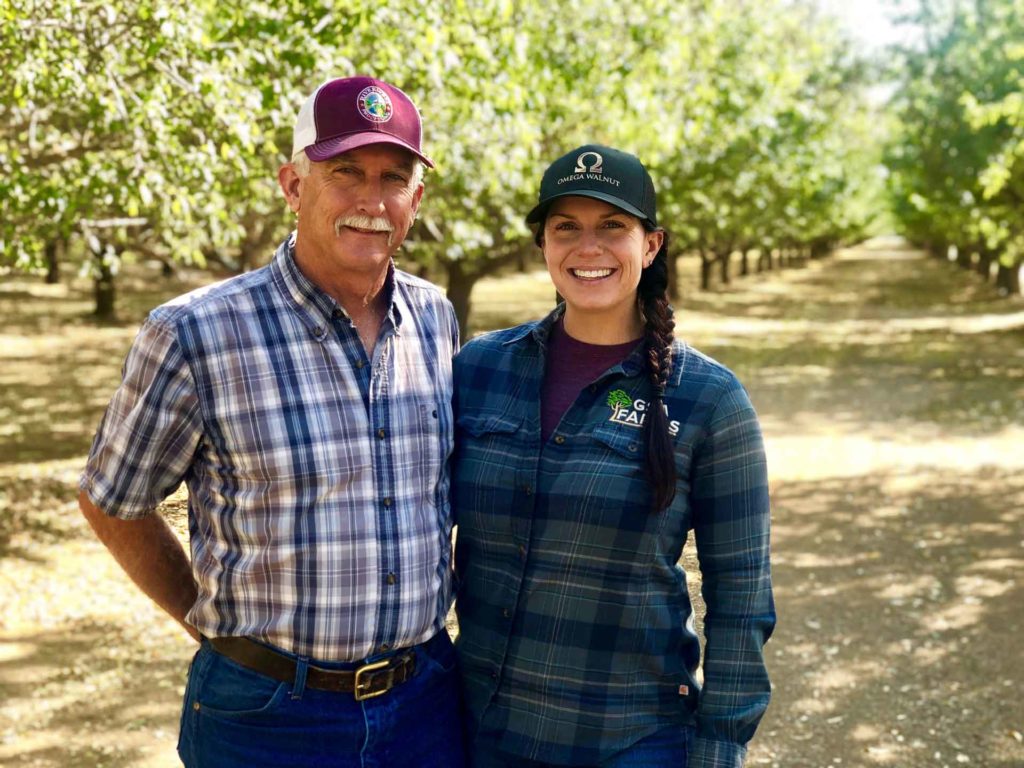
All Hands on Deck
Harvest time of year is all hands-on deck, but Jocelyn said they manage to do it mostly in-house and don’t generally have to hire much outside help. “We start almonds around August 1st and will be wrapping up almond pollinators about mid-September. That same time we are then getting the walnut huller going. We start will the Gillet walnut variety first, it’s a UC Davis variety that is about 93 percent jumbo and a light-colored nut.” It fits well in their businesses alongside Howards, Hartley and the largest variety Chandler.
They manage their 80-bin huller and walnut harvest between their six full time farm employees, her Dad and her. She manages the walnut dryer with some assistance from her Dad. “If we are getting ready to start drying, we talk about what bins and what lines we are using. While bins are filling up, I manage the walnut waste. Depending on the variety, time of year and weather the walnuts can be in the drying bins from 5-24 hours. We use natural gas dryers here on our dryer and they need to be checked periodically throughout the day and night. When they have reached eight percent, we can fill the trailers. Then in the morning we fill trucks for loads to head out to processors and clean everything before the huller starts up again.”
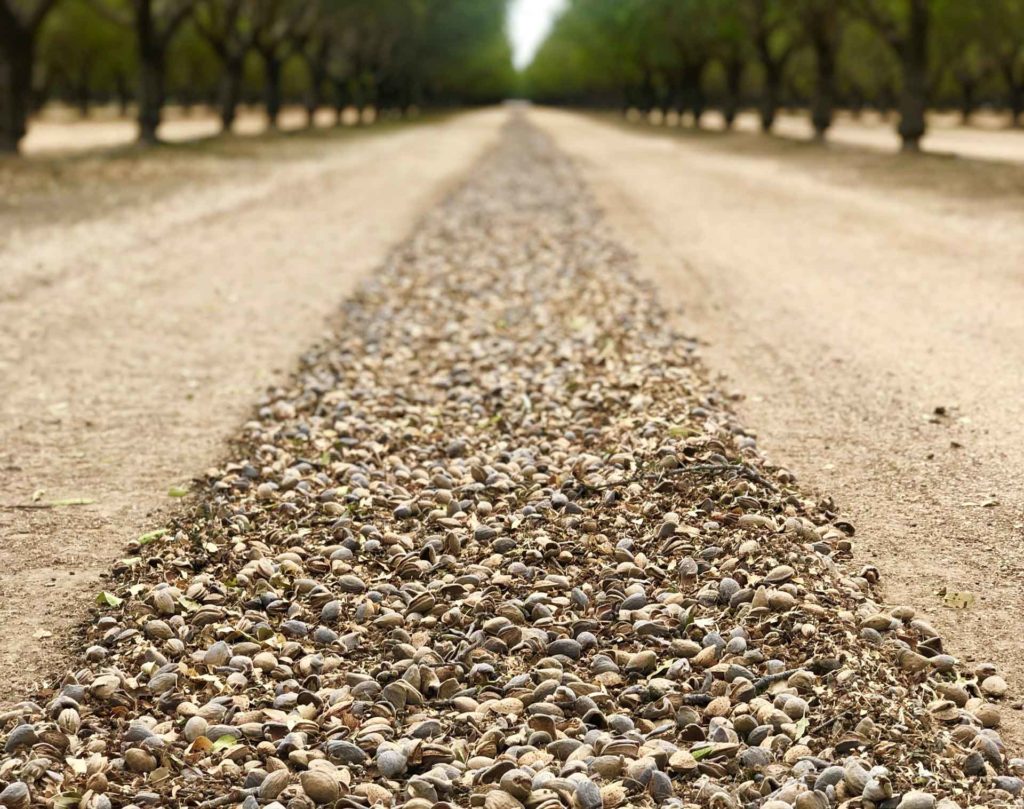
Jocelyn says her Dad ensures the overall process is running smooth not just in the huller but he checks the harvesters in the field. Gary manages the shakers, sweepers, conditioner, pick up machines and all field harvesting. Jocelyn credits their smooth operations to their employees. “We trust the people who work for us. We all know what we are doing, and we know it well. Mistakes rarely happen.” It is the expertise of all members of the farm that make their business successful. She adds, “We aren’t just managing our product, either. We are handling other farmers crops as well. We have a solid foundation of team work and we care for each other and encourage each other.”
The most challenging part of farming, Jocelyn says is dealing with the regulatory changes. “Having to be able to incorporate and work with changes constantly is challenging. Whether that be produce safety guidelines, food safety rules, current procedures in place, safety training and documenting everything we do.” These are just added steps they have had to integrate into their processes and part of their business, but they do come with long hours and diligent work.
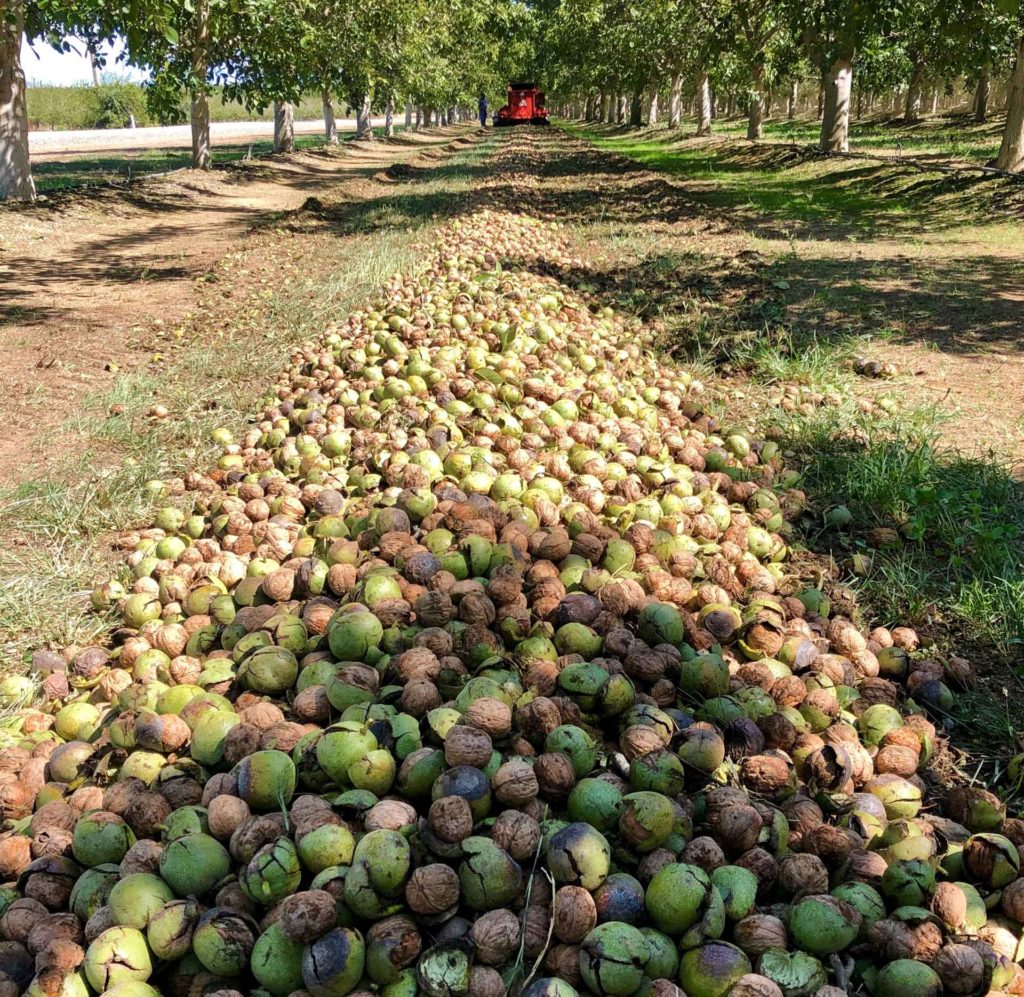
Harvest Goal
Their goal is to be done with walnut harvest by November 1st. Then it is time to clean the entire huller and all the parts to close it up for winter. After that, Jocelyn says you will find her in the office, “Catching up on getting bills out, end of year reports, nitrogen management plans, safety planning but I really enjoy the general care of the orchards over winter, pruning, keeping them clean, and just taking care of the trees.”
Anderson adds it is her love for farming that makes each day easy to come to work. She plans to fully manage the property and farm someday when her Dad is ready to work less and not be as involved. Jocelyn plans to help grow the business and expand the farm. Anderson is happy she made the switch in her career paths and claims, “It is the best decision I ever made.”
